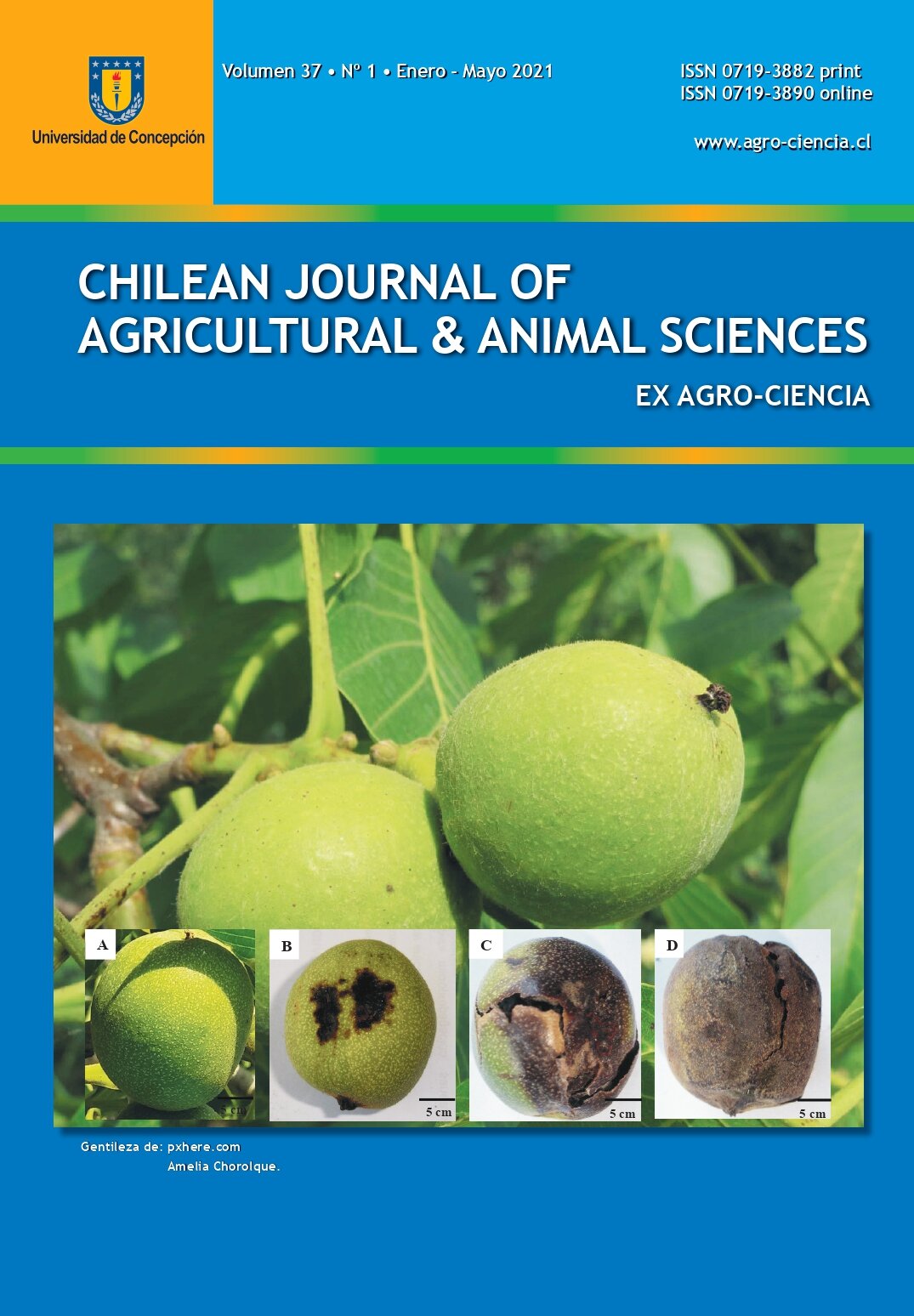PVA POLYMER AS A TOOL TO PREVENT FROST DAMAGE ON CHERRY Prunus avium L. FLOWER BUDS
Miguel Valenzuela-Villar1, Richard M. Bastías1*, Saddys Rodriguez2, y Constanza Sabando2
ABSTRACT
Frost damage on fruit trees occurs when temperature below 0°C induces ice crystallization in plant tissue. Polyvinyl alcohol (PVA) based polymer has been used to inhibit ice crystallization under laboratory conditions. The objective of this study was to evaluate the effectiveness of a PVA-based polymer to prevent frost damage on cherry Prunus avium L. flower buds. The following treatments were evaluated: i) F1: PVA at a dose of 10 cm3 L-1; ii) F2: (PVA + polysorbate agent) at a dose of 15 cm3 L-1; iii) F3-15: (PVA + polysorbate + polyvinylpyrrolidone agent) at a dose of 15 cm3 L-1; iv) F3-30: (PVA + polysorbate agent + polyvinylpyrrolidone) at a dose of 30 cm3 L-1. A control treatment consisting of a commercial anti-freeze agent (AAC) at a dose of 10 cm3 L-1 and distilled water was also included. The trials were conducted under field conditions (localities, cultivars and cyanamide application) and laboratory (micro-chamber). In the field trials, the effect of the polymer was quantified according to the following fruit quality parameters: size (mm), firmness (g mm-1), soluble solids (°Brix) and color (CITFL scale). For the different trials, the F3 polymer formulation were the most effective in reducing frost damage on cherry flower buds, whose effectiveness varied from 40% to 100%, with no negative effects on fruit quality. These results demonstrate that the use of PVA polymer is a promising tool for frost damage control in cherry orchards.
Key words: Cryoprotective agent, polymer PVA, polyvinyl alcohol, climate change, Prunus avium, frost.
1 Universidad de Concepción, Facultad de Agronomía, Av. Vicente Méndez 595, Chillán, Chile.
2 Centro de Investigación de Polímeros Avanzados, Avenida Collao 1202, Edificio de Laboratorios CIPA, Concepción, Chile.
*Autor para correspondencia: [email protected]


